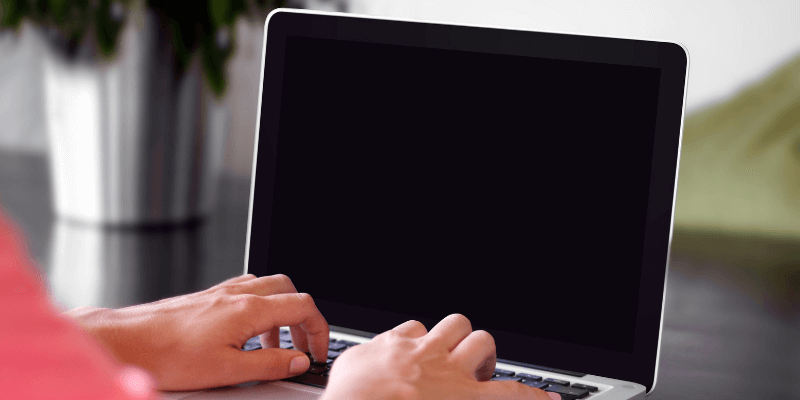In all writing done correctly, we see the necessary use of the orthographic signs, they are the ones that give meaning and necessary importance to the paragraph we make. Therefore, it is vitally important that we know the meaning and when we should use them. In this case, we are going to focus on the quotation marks or apostrophes, these signs are used at the beginning and at the end of the text or word. It has various functions, but the main one is to make it known that what has been written inside it is not your own, but comes from another source. How to put the apostrophe on a Mac keyboard?
The use of this and other spelling symbols can be difficult to find on a PC keyboard, especially if we have a PC or Mac laptop, this type of keyboard can be a bit complicated due to the differences it has with other keyboards. In this article, we will help you find these signs and learn a variety of commands that can be of great help and greatly facilitate your work efficiency.

What should you do to put the apostrophe in your searches or Mac documents in Spanish?
By having a Mac computer you will notice the differences it presents with the Windows system, among such differences are the locations of the spelling symbols such as quotation marks, symbols among others, there is also the difference of how to place or write the at sign in our Mac. If your keyboard is set to Spanish, you will only have to press the Alt key in conjunction with SHIFT in addition to the number 8 to open the quotation marks, to close them you only have to keep the Alt + SHIFT + 9 keys marked until the quotation marks appear.

How do you put the quotes on Mac if you have it set to English?
There are different methods to configure or modify our keyboard to make it easier to use that will depend on the user, in this case, if we have our Mac configured in English and we want to know how to put the quotes, you have a choice in the control panel to set them outside of the quotation marks when you proceed to place them in a text. In this way, while the system processes and examines the first two layers, which are the figure and the value of each opening or closing quotation mark, you will be able to inspect the third layer that is about the representation.
It should be noted that, in formatted documents, what you must do first is to place the quotation marks in a formatted text and use the three layers. This means that you are going to use the figure, the opening or closing price that recognizes the outside of the quotation marks, resulting in that the same quotation mark will remain with the same defined sign, thanks to the timely choice made in the Control Panel.
Now, the best way to put the quotation marks on Mac if you have it configured in English is as follows: first, place the cursor where you want to place the quotation marks. Second, click on the ‘keyboard shortcut ⌃⌘ Spacebar’. Then, in the option that you will find in the menu search, put quotation. In this last part, all the usable quotation marks will be broken down so that you can choose one of them.
These symbols belong to three layers of quotation marks, so you must consider the printing press that tolerates these symbols in their projection, otherwise, the result will not be as desired as a different symbol, an empty space, or a square in the center of which will contain an X This can happen when the typography used does not have the necessary tolerance for its coding in the text.

How can you put other symbols using Mac commands?
Many times, we want to do our work faster, either to copy and paste a text or image document through shortcuts. And it is no different in the case of ‘symbols using Mac commands’. Therefore, in this part, we are going to explain how you could set an access key that is faster to switch keyboards. To do this, the first thing you should do is look at the option entitled Shortcuts, you will find it in the search bar called System Preferences, where later, you must click on the chosen menu.
When you’re in the Shortcuts menu, choose the option titled Input Sources on the left side and check the box next to the Select previous input source option. Likewise, below, we are going to present you two ways to ‘put other symbols using Mac commands’, which are the following: ‘Option + Alt’ and ‘Option + Alt + Shift’, which will be detailed one by one.
‘Option + Alt’
The first way we can use to put other symbols using Mac commands is by pressing the ‘Option + Alt’. And here we will bring you how to place with the latter, different symbols, so follow this simple guide:
Option + `= this key is the dead one to express the grave accent: then we only have to write aeiou in order to get àèìòù. Option + 1 = ¡. Option + 2 = ™. Option + 3 = £. Option + 4 = ¢. Option + 5 = ∞. Option + 6 = §. Option + 7 = ¶. Option + 8 = •. Option + 9 = ª. Option + 0 = º. Option + – = -. Option + = = ≠. Option + Q = œ. Option + W = ∑. Option + E = ´ dead key for acute tilde: then type aeiou to get áéíóú. Option + R = ®. Option + T = †. Option + Y = ¥. Option + U = ¨ it is a key to use the umlaut as a result of the vowels aeiou you will get the following ä ë ï ö ü. Option + I = ˆ with it, like the previous one, the circumflex accent is obtained from the vowels aeiou â ê î ô û, Option + O = ø. Option + P = π. Option + [= “. Option +] = ‘. Option + \ = «. Option + A = å. Option + S = ß.
Other commands or shortcuts that can be helpful are the following: Option + D = ∂. Option + F = ƒ. Option + G = ©. Option + H = ˙ Option + J = ∆. Option + K = ˚ Option + L = ¬ Option +; =… Option + Z = Ω. Option + X = ≈. Option + C = ç, Option + V = √. Option + B = ∫. Option + N = ˜. Option + M = µ. Option +, = ≤. Option +. = ≥ and finally Option + / = ÷.
‘Option + Alt + Shift’
The second way we can use to put other symbols using Mac commands is by pressing the ‘Option + Alt + Shift’. And here we will bring you how to place with the latter, different symbols, so follow this simple guide:
Option + Alt + SHIFT + `=`. Option + SHIFT + 1 = /. Option + SHIFT + 2 = €. Option + SHIFT + 3 = ‹. Option + SHIFT + 4 = ›. Option + SHIFT + 5 = fi. Option + SHIFT + 6 = fl. Option + SHIFT + 7 = ‡. Option + SHIFT + 8 = °. Option + SHIFT + 9 = ·. Option + SHIFT + 0 =. Option + SHIFT + – = -. Option + SHIFT + = = ±. Option + SHIFT + Q = Œ. Option + SHIFT + W = „Option + SHIFT + E = ´. Option + SHIFT + R = ‰. Option + SHIFT + T = ˇ. Option + SHIFT + Y = Á, Option + SHIFT + U = ¨. Option + SHIFT + I = ˆ. Option + SHIFT + O = Ø. Option + SHIFT + P = ∏. Option + SHIFT + [= ”. Option + SHIFT +] = ‘. Option + SHIFT + \ = ». Option + SHIFT + A = Å, Option + SHIFT + S = Í. Option + SHIFT + D = Î. Option + SHIFT + F = Ï. Option + SHIFT + G = ˝. Option + SHIFT + H = Ó. Option + SHIFT + J = Ô.
As we can see, there are different commands with which to place a great variety of symbols, these would be the last ones: Option + SHIFT + K = . Option + SHIFT + L = Ò. Option + SHIFT +; = Ú. Option + SHIFT + ‘= Æ. Option + SHIFT + Z =. Option + SHIFT + X =. Option + SHIFT + C = Ç. Option + SHIFT + V = ◊. Option + SHIFT + B = ı. Option + SHIFT + N = ˜. Option + SHIFT + M = Â. Option + SHIFT +, = ¯. Option + SHIFT +. = ˘. Option + SHIFT + / = ¿. Option + SHIFT + <= ¯. Option + SHIFT +> = ˘.





